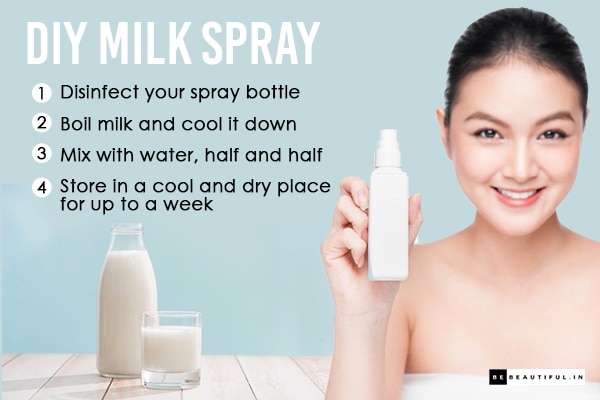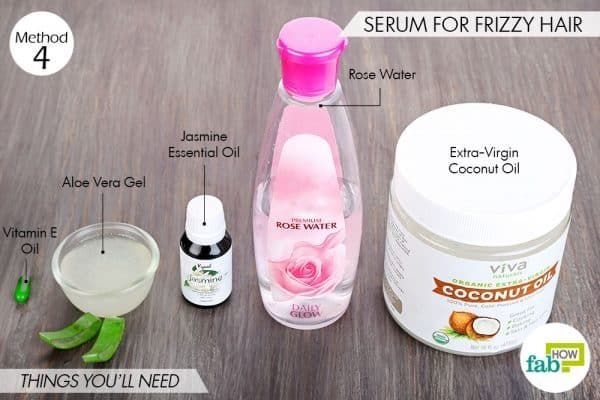You can make hair serum at home with natural remedies by mixing aloe vera, argan oil, and essential oils. Creating your own hair serum at home with natural ingredients is a cost-effective and natural alternative to store-bought products.
By using common household items like aloe vera gel, argan oil, and essential oils, you can nourish your hair without harsh chemicals. Making hair serum at home allows you to customize the blend to suit your hair type and address specific concerns such as dryness, frizz, or dullness.
Not only is this approach environmentally friendly, but it also gives you complete control over what goes into the formula, ensuring a healthy and safe product for your hair. In this guide, we’ll explore simple methods for creating effective and luxurious hair serums using readily available home remedies.

Contents
Understanding Hair Serum
Hair serum is a vital part of many people’s hair care routines, providing a protective and nourishing layer for the hair. Understanding the role of hair serum and its benefits can help in choosing the right product or making a homemade alternative using natural remedies. In this article, we will delve into the significance of hair serum, the advantages of using natural hair serums, and common ingredients in homemade hair serums. With this knowledge, you can create your own hair serum at home, tailored to your specific hair needs.
The Role Of Hair Serum In Hair Care
The role of hair serum in hair care is to provide a protective coating for the hair strands, enhancing their strength and appearance. Hair serum works by sealing the hair cuticles, preventing moisture loss, and protecting against environmental damage such as heat, humidity, and pollution. Additionally, it helps in reducing frizz, taming flyaways, and adding a healthy shine to the hair.
Benefits Of Using Natural Hair Serums
Using natural hair serums offers several benefits for hair health and overall well-being. Natural hair serums are free from harmful chemicals commonly found in commercial products, reducing the risk of adverse reactions and long-term damage to the hair and scalp. Furthermore, natural hair serums are often enriched with vitamins, essential oils, and plant extracts that nourish and promote hair growth, providing a holistic approach to hair care.
Common Ingredients In Homemade Hair Serums
Creating homemade hair serums allows you to tailor the formulation to meet your hair’s specific needs, using readily available natural ingredients. Common ingredients found in homemade hair serums include natural oils such as coconut oil, argan oil, jojoba oil, and almond oil. These oils are rich in nutrients and possess moisturizing, strengthening, and protective properties for the hair. Additionally, essential oils like lavender, rosemary, and ylang-ylang can be incorporated to enhance the aroma and provide additional benefits such as scalp stimulation and improved blood circulation.
Selecting Ingredients For Homemade Hair Serum
When it comes to creating your own hair serum at home, selecting the right ingredients is crucial for achieving the desired results. Different hair types and concerns call for specific properties in the ingredients to address individual needs effectively.
Essential Oils For Various Hair Types
Essential oils play a key role in homemade hair serums due to their concentrated plant extracts that offer various benefits for different hair types. Selecting the right essential oil for your serum requires a good understanding of your hair’s specific needs. Here are some essential oils recommended for different hair types:
- Lavender oil: Suitable for all hair types, helps in enhancing hair growth and scalp health.
- Tea tree oil: Ideal for oily and dandruff-prone hair, renowned for its antimicrobial properties.
- Rosemary oil: Great for stimulating hair growth and improving circulation, making it beneficial for thinning or dull hair.
- Chamomile oil: Perfect for soothing and calming the scalp, especially for those with sensitive or irritated skin.
Carrier Oils And Their Properties
Carrier oils serve as a base for essential oils and offer their own set of advantages for homemade hair serums. Each carrier oil comes with its unique properties, making them suitable for addressing specific hair concerns. Here are a few common carrier oils and their properties:
| Carrier Oil | Properties |
|---|---|
| Coconut oil | Effective for moisturizing and nourishing the hair, ideal for dry and damaged hair. |
| Jojoba oil | Similar to the natural oils produced by the scalp, making it a great option for balancing oil production and promoting hair growth. |
| Argan oil | Rich in antioxidants and vitamin E, excellent for controlling frizz and adding shine to the hair. |
Other Beneficial Add-ins For Specific Hair Concerns
In addition to essential and carrier oils, certain add-ins can further enhance the efficacy of homemade hair serums, addressing specific hair concerns. Here are some beneficial add-ins for specific hair concerns:
- Aloe vera gel: Offers soothing and hydrating properties, beneficial for calming an irritated scalp or treating dry, brittle hair.
- Castor oil: Known for its thickening and strengthening properties, suitable for those with thin or weakened hair.
- Silk protein: Helps in adding strength and shine to the hair, making it a great addition for damaged or dull hair.
Recipes For Homemade Hair Serums
If you’re tired of spending a fortune on hair serums that don’t deliver the promised results, it’s time to turn to the kitchen for some DIY magic. Making your own hair serums at home not only gives you full control over the ingredients, but it’s also a fun and satisfying way to pamper your hair. Whether you’re seeking to nourish dry and damaged locks, promote hair growth, or soothe your scalp, these homemade hair serum recipes will have your tresses looking and feeling their best.
Nourishing Hair Serum For Dry And Damaged Hair
Give your hair the love and hydration it craves with this nourishing homemade hair serum. Infused with the goodness of natural oils, this serum will help revive and restore dry and damaged hair, leaving it soft, smooth, and lustrous.
Revitalizing Hair Serum For Promoting Hair Growth
Promote healthy hair growth with this revitalizing homemade hair serum. Packed with essential oils known for their stimulating properties, this serum will help nourish your scalp, improve blood circulation, and encourage the growth of strong, luscious locks.
Soothing Hair Serum For Scalp Health
Keep your scalp happy and healthy with this soothing homemade hair serum. Formulated with calming ingredients, this serum will help alleviate itchiness, reduce inflammation, and maintain a balanced and nourished scalp environment for optimal hair health.
Application And Usage Tips
Making your own hair serum at home is a simple and cost-effective way to nourish and protect your hair. Once you’ve created your homemade hair serum, it’s important to understand how to use it properly to achieve the best results. In this section, we’ll discuss the correct application techniques for maximum effectiveness, the frequency and timing of serum application, and how to incorporate homemade hair serum into your existing hair care routine.
Correct Application Techniques For Maximum Effectiveness
When applying your homemade hair serum, it’s important to distribute it evenly throughout your hair. Start with a small amount and spread it between your palms. Then, gently run your hands through your hair, focusing on the ends and any areas that tend to be dry or damaged. Avoid applying the serum directly to your scalp to prevent buildup and weighdown. For thicker or longer hair, use a wide-tooth comb to distribute the serum more evenly.
Frequency And Timing Of Serum Application
For optimal results, use your homemade hair serum 2-3 times a week. Apply it after washing and conditioning your hair, while it’s still damp. This allows the serum to lock in moisture and provide a protective barrier against the heat of styling tools and environmental damage. Avoid overusing the serum to prevent buildup, as a little goes a long way.
How To Incorporate Homemade Hair Serum Into Existing Hair Care Routine
Integrating your homemade hair serum into your existing hair care routine is simple. After washing and conditioning, pat your hair dry with a towel and apply the serum as directed. If you use other leave-in treatments or styling products, consider the order in which you apply them to ensure maximum effectiveness. Layering your serum over other products may dilute its effects, so it’s best to use it as the last step in your styling regimen.
Conclusion And Safety Precautions
As we conclude our discussion on making hair serum at home with natural home remedies, it’s important to keep in mind the safety precautions and proper storage of your homemade hair serum. Additionally, understanding the potential allergic reactions and benefits of using a homemade hair serum is crucial for achieving healthy, lustrous hair.
Tips For Storage And Shelf Life Of Homemade Hair Serums
Proper storage is essential for maintaining the efficacy and longevity of your homemade hair serum. Store it in a dark-colored glass bottle or container to prevent exposure to light, and keep it in a cool, dry place to avoid spoilage. Depending on the ingredients used, the shelf life of homemade hair serum can vary, but it’s generally recommended to use it within 3-6 months for optimal results.
Safety Measures And Allergic Reactions To Be Mindful Of
Before applying any homemade hair serum, it’s important to conduct a patch test to check for potential allergic reactions. Some natural ingredients, such as essential oils or certain herbs, may cause allergic responses in some individuals. Always dilute essential oils properly and do not use any ingredient that you are allergic to. In case of any adverse reaction, discontinue use immediately and seek medical advice.
Final Thoughts On The Benefits Of Homemade Hair Serum
Creating your own hair serum at home using natural remedies is not only cost-effective but also allows you to customize the formula based on your specific hair needs. Natural ingredients such as coconut oil, argan oil, aloe vera, and essential oils promote hair health without the risk of harmful chemicals found in commercial products. Regular use of homemade hair serum can help nourish and strengthen your hair, leading to silkier, shinier, and healthier tresses.
Frequently Asked Questions On How To Make Hair Serum At Home With Home Remedies
How Do I Make Hair Serum At Home?
You can make hair serum at home by combining argan oil, coconut oil, and a few drops of essential oils for fragrance.
What Are The Benefits Of Homemade Hair Serum?
Homemade hair serum provides nourishment, tames frizz, adds shine, and protects hair from heat damage without harmful chemicals.
Which Home Remedies Can Be Used To Make Hair Serum?
You can use natural ingredients like aloe vera gel, jojoba oil, almond oil, and vitamin E to make effective hair serum at home.
How Often Should I Use Homemade Hair Serum?
You can use homemade hair serum 2-3 times a week for best results. Adjust frequency based on your hair’s specific needs.
Can Homemade Hair Serum Be Used On All Hair Types?
Yes, homemade hair serum can be used on all hair types, including curly, straight, wavy, and textured hair without any issues.
Conclusion
Making hair serum at home using natural remedies can be a cost-effective and healthy alternative to store-bought products. With simple ingredients like oils and essential oils, you can create a customized serum that suits your hair type and addresses specific concerns.
By following these DIY recipes, you can achieve nourished, lustrous hair without exposing it to harmful chemicals.





